The women risking it all to flee Syria for a new start in Europe
- Published
Through their shared hardship, Siham and Fathiye have forged a friendship
Maha is a 28-year-old doctor from Raqqa with a bright smile and a dark story of life in Syria.
Travelling on her own to escape her home city, which is now so-called Islamic State's (IS) capital, she crawled through mud along the Turkish border to make it to safety.
"Death was my companion at every step," she told me at the Kara Tepe camp on the Greek island of Lesbos.
Her heart pounded at each of the 46 checkpoints she had to cross to get out: "They don't want doctors to leave and they could have prevented me."
She sewed her papers into her clothes so they wouldn't be found. But she wanted to bring them with her - the precious qualifications with which she hopes to start a new life and find work.
She wants to join her brothers and sisters who have already made it to Germany.
Maha is also a statistic.
When the migration crisis began, most of those on the move were men. But since the start of the year, women and children have made up the bulk of the refugees and migrants, external.
Many are trying to join their husbands and children who went ahead with the money the family had at the time, leaving them to come afterwards.
Others have lost husbands and brothers to Syria's five-year war.
And aid agencies say the risks the women face are not over now that they have reached Europe's shores.
Migrant crisis: Stranded in Greece
Exploited and abandoned: A child's journey to Europe
EU-Turkey migrant deal: A Herculean task
Why is EU struggling with migrants and asylum?
Europe migrant crisis - Special Report
"Without the protection of family and community, they frequently endure sexual violence, unintended pregnancies, trafficking and even child marriage," says Babatunde Osotimehin, head of the UN's Population Fund.
"Basic needs for family planning, reproductive health and safe childbirth and protection from violence and abuse are rarely met."
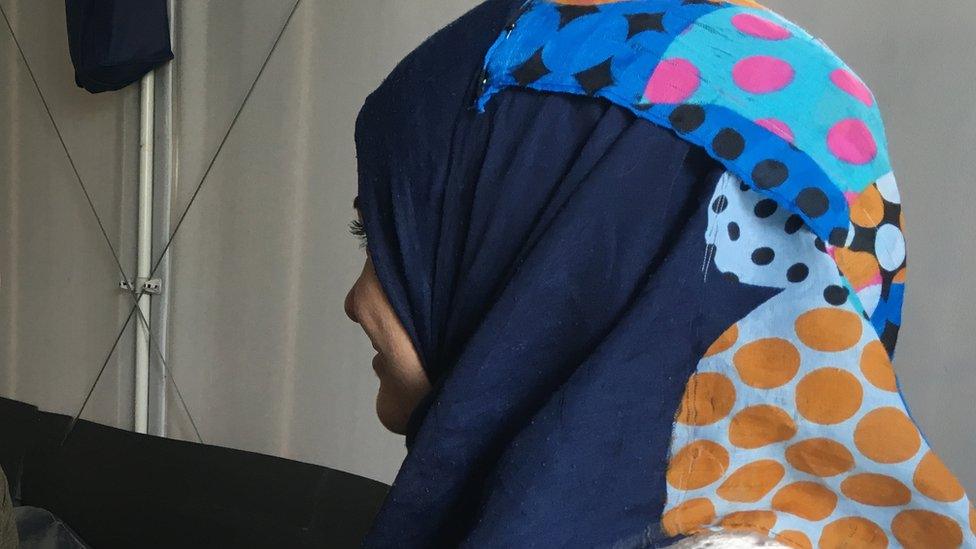
Maha crawled through mud to during her escape from Raqqa
Women are under "enormous stress", according to Kiki Michailidou, a psychologist for the International Rescue Committee, which works in Kara Tepe.
"I've got a waiting list of 20 people and every day we get new referrals."
I asked Maha if she felt scared as a woman travelling without any male relatives.
"Actually what we left behind was far worse," she told me. "I was frightened in my own country. That's why I left."
Maha is now living with eight other women and girls in a prefabricated hut.
Reliving traumas
It is cramped. But the Kara Tepe camp has been set aside for the most vulnerable people arriving on Lesbos.
And conditions are far better than they are elsewhere in the country where 50,000 people have been stranded since Europe's borders closed and the EU-Turkey deal came into effect.
But a sense of desperate uncertainty pervades the camp.
In limbo on Lesbos, the women have no idea what will happen to them - and endless time to relive their traumas.
Just a few metres from Maha's new home, four other well-groomed young women share a hut with four of their children.
It is almost noon when I meet them, and they have just got up. "We don't want you to think we're lazy. But we try to sleep as much as possible - just to ease the boredom and to try to forget."
When they recall why they are here, their eyes keep welling with tears.
The family is from the Syrian city of Deir al-Zour - which is divided between control by the government and by IS militants. And they are too frightened to give their names.
"The smugglers stole our money. They blackmailed us, saying that they'd tell the police if we didn't pay up," says the eldest of the women, a 38-year-old we'll call Fatima. "If we had just one man with us, it would be different. We'd have someone to fight our corner."
But her husband is stuck in Syria. He is a government employee and wasn't able to get out safely through all the checkpoints on their road to Turkey.
ActionAid's Nadia Krayem helps run a women's centre at the Kara Tepe camp.
Fatima's sister's husband is dead - beheaded by IS militants. Her first cousin's husband died under torture in a government jail. And they are all trying to reach Germany where a relative is now living with one of her sons.
Their hut in Kara Tepe has no light - and no lock. They tie the door with string at night to make sure no-one comes in. "We're scared to go to the toilet at night," Fatima tells me.
Many of the women travelling without men have formed their own support networks to help each other.
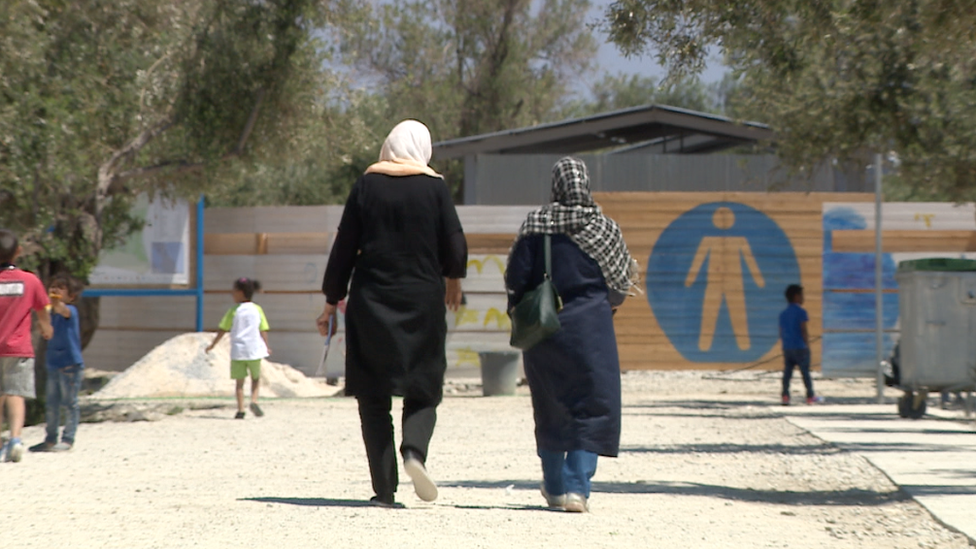
Women have formed support networks at the camp
Siham and Fathiye both smile as they remember how they first met - in a Turkish detention facility where they were held after crossing illegally from Syria in March.
Siham's husband and two sons disappeared in northern Syria over a year ago, and she has no idea what happened to them. She fled Aleppo with her daughter after their house was hit by a rebel shell.
They now share a hut with Fathiye who - with her three youngest children - left Damascus to try to reach her husband and two older children in Germany.
"We've become like sisters," says Fathiye of the friendship she has forged with Siham. "I left my sisters behind in Syria but I've found a sister here."
"Me too," says Siham.
The women hope - one day - to live next door to each other in Germany.
But, like everyone in this camp, they don't know how long it will take for their cases to be processed, or what chance they have of success.


BBC News World On The Move is a day of coverage dedicated to migration, and the changing effect it is having on our world.
A range of speakers, including the UNHCR's special envoy Angelina Jolie Pitt, and former British secret intelligence chief Sir Richard Dearlove, will set out the most important new ideas shaping our thinking on economic development, security and humanitarian assistance.
You can follow the discussion and reaction to it, with live online coverage on the BBC News website, external.

- Published13 May 2016
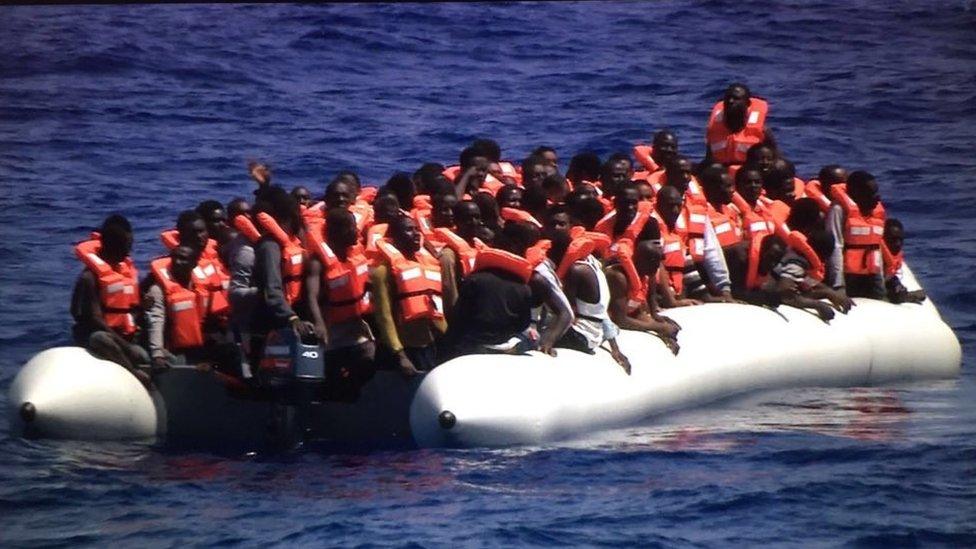
- Published21 March 2016
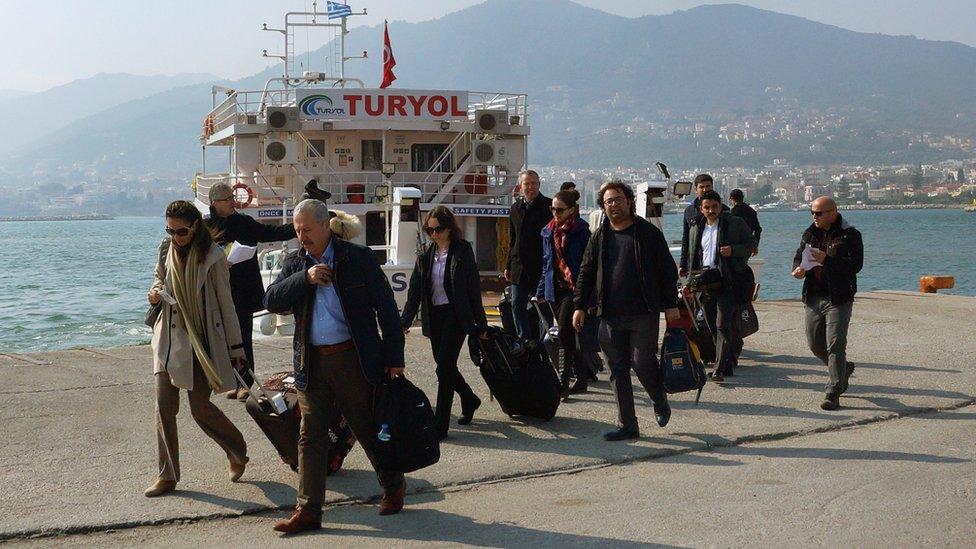
- Published4 March 2016
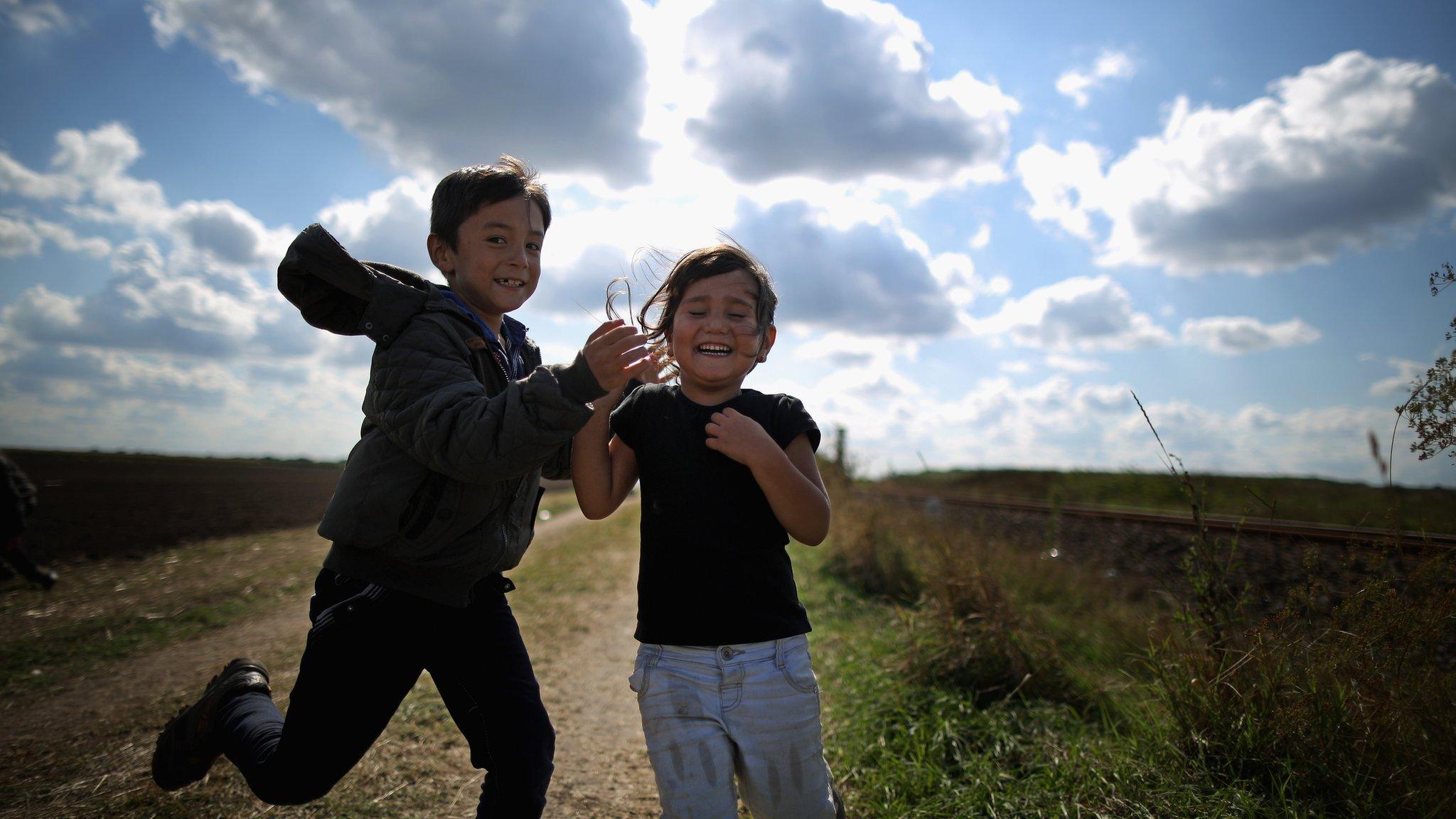
- Published17 September 2015